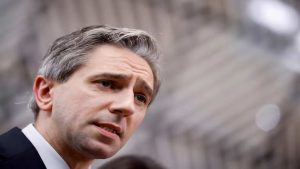The parties in South Africa await the “devil in details” of the ANC’s alliance strategy.
The parties in South Africa await the “devil in details” of the ANC’s alliance strategy.
In order to discuss the invitation made by the ruling African National Congress to join a government of national unity, the opposition parties in South Africa convened on Friday and will engage in intense negotiations throughout the coming week.
Several opposition parties have already turned down the ANC’s offer due to deeply held divisions, despite the party’s failure to secure a majority in the hotly contested election last week.

The party has chosen to allow other opposition parties to be a member of the government, in what appears to be a government of national unity reminiscent of a course taken by the Nelson Mandela-led ANC following the nation’s first democratic election in 1994.
Leading DA leaders will meet on Monday to discuss the centrist party’s position in the negotiations. The principal opposition is the Democratic Alliance. The top leadership of the left-leaning Economic Freedom Fighters, or EFF, held talks on Friday.
The party has chosen to invite a wide range of opposition parties to be a member of the government, in what appears to be a government of national unity reminiscent of a route followed by the Nelson Mandela-led ANC following the nation’s first democratic election in 1994.
The African National Congress (ANC) had nearly 63% of the national vote and won by an overwhelming majority, but Mandela insisted on a unity government. The ANC’s worst electoral performance to date has seen it fall from 57.5% in the 2019 election to 40% this year, a 17.5% decline.
The leader of the EFF, shortly after Ramaphosa’s declaration, took to X to denounce the politician’s idea for a government of national unity and to charge the African National Congress of arrogance despite failing to win a majority.
Although the EFF’s share of the national vote fell from 11% in 2019 to just over 9% following the election, it is still projected to play a significant role in the discussions’ final result.
Even after the South African voters sent forth warning signals, the haughtiness persisted. Julius Malema, the head of the EFF, stated, “You can’t dictate the way forward as if you have won elections.” We have a generational mission; we are not in need of anything.
Malema declared, “We cannot share power with the enemy.”
The Democratic Alliance named the Economic Freedom Fighters its top adversary in 2023.
The DA announced that its highest decision-making body, the Federal Council, will convene on Monday to discuss its options. The DA received slightly more than 21% of the national vote to maintain its position as the second-biggest party.
We have a full negotiation team and are meeting as the federal council on Monday, so I am unable to comment at this time on the DA’s position. Helen Zille, the federal chairman of the Democratic Alliance, stated on Friday that “we will have a framework for negotiations that we will release this weekend.”
The Inkatha Freedom Party, which came in fifth place with about 4% of the national vote, stated on Friday that it would be open to working with the government of national unity. However, it also stated that it will be holding talks about the issue with its party structures in the coming days.
The IFP has nothing against a government of national unity (GNU) in theory. IFP spokesman Mkhuleko Hlengwa stated, “But the devil is in the details, which will become clearer in the coming days… enabling the IFP to make a well-considered decision.”
The uMkhonto weSizwe Party, which was led by former president Jacob Zuma and broke away from the ANC, was the most recent to acknowledge on Thursday that it had started negotiations with the ANC after originally declining the party’s invitation.
The party has complained to the nation’s electoral commission about the election results, alleging purported irregularities in the voting process and threatening to abstain from the first Parliamentary session that will inaugurate the new lawmakers.
According to economists, the markets are eager to observe how the negotiations turn out in order to determine the makeup of the incoming government of the most developed economy in Africa as well as the economic policies it will implement.










